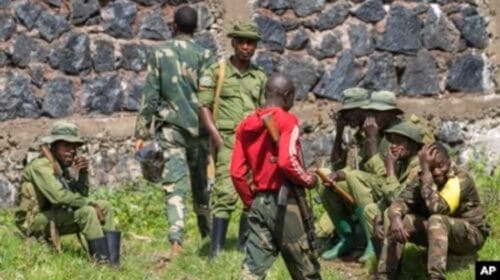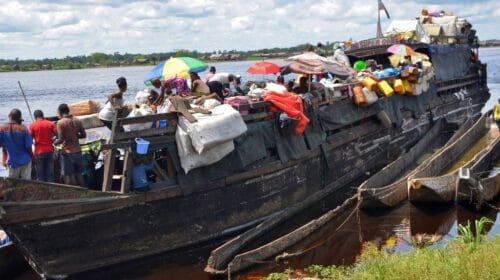DRC Rebels Looting Before Goma Withdrawal
One resident, who declined to give his name, points to two shattered window panes on his home, which he says the soldiers broke with their rifles as his family was eating dinner.
“They entered in our house at one in the morning,” he says. “They took our money, the mattress, a telephone. They looted everything. In the morning, we couldn’t find them.”
At the main intersection in town, truck drivers stand idly by their vehicles. They say the rebels have demanded they pay $320 to leave town, and they cannot go anywhere until they get the money.
An outdoor market is nearly deserted as shopkeepers say M23 is extorting money from them as well. Emmanuel sells soap, candy and a few other small items at one of the few open stalls, but does not think he will make enough to pay the rebels off.
“Now they come and ask us to pay $50 for the small things we are selling,” he says. “Where are we going to find this money? It’s better to take all of our items because we do not have this money.”
The rebels seized control of the town last week after heavy fighting with the Congolese armed forces.
But now, as part of an agreement reached between the M23 and the Congolese government, the rebels are preparing to pull out of Sake and the nearby city of Goma.
Rebels were seen moving equipment in and around Goma, though the actual retreat is expected to take place Friday.
Congolese forces, known as FARDC, are set to take back control of Sake and Goma after the rebel withdraw, which could bring more problems.
Congolese soldiers also looted Sake on their retreat from the town, and abuses have also been reported in Minova where the army has been consolidating.
A Sake resident who gave his name as Amani says he will still welcome FARDC’s return to the city.
“Yes, it’s better because we have already lived with them. But (M23), they always come here to intimidate us, they take everything and tell us what to do, they treat us like slaves,” said Amani.
A recent report from the aid group Oxfam describes an unprecedented level of financial exploitation of communities caught up in the recent conflict in eastern Congo.
Oxfam says civilians are increasingly becoming “commodities of war,” fought over by armed groups, including the army, as a way to raise money.



